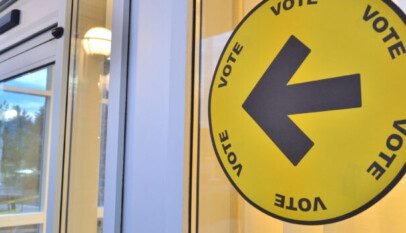
The COVID-19 pandemic has triggered an equally urgent digital rights crisis.
New measures being hurried in to curb the spread of the virus, from “biosurveillance” and online tracking to censorship, are potentially as world-changing as the disease itself. These changes aren’t necessarily temporary, either: once in place, many of them can’t be undone.
That’s why activists, civil society and the courts must carefully scrutinise questionable new measures, and make sure that – even amid a global panic – states are complying with international human rights law.
Human rights watchdog Amnesty International recently commented that human rights restrictions are spreading almost as quickly as coronavirus itself. Indeed, the fast-paced nature of the pandemic response has empowered governments to rush through new policies with little to no legal oversight.
There has already been a widespread absence of transparency and regulation when it comes to the rollout of these emergency measures, with many falling far short of international human rights standards.
Tensions between protecting public health and upholding people’s basic rights and liberties are rising. While it is of course necessary to put in place safeguards to slow the spread of the virus, it’s absolutely vital that these measures are balanced and proportionate.
Unfortunately, this isn’t always proving to be the case. What follows is an analysis of the impact of the COVID-19 pandemic on the key subset of policy areas related to digital rights:
a) The Rise of Biosurveillance
A panopticon world on a scale never seen before is quickly materialising.
“Biosurveillance” – which involves the tracking of people’s movements, communications and health data – has already become a buzzword, used to describe certain worrying measures being deployed to contain the virus.
The means by which states, often aided by private companies, are monitoring their citizens are increasingly extensive: phone data, CCTV footage, temperature checkpoints, airline and railway bookings, credit card information, online shopping records, social media data, facial recognition, and sometimes even drones.
Private companies are exploiting the situation and offering rights-abusing products to states, purportedly to help them manage the impact of the pandemic. One Israeli spyware firm has developed a product it claims can track the spread of coronavirus by analysing two weeks’ worth of data from people’s personal phones, and subsequently matching it up with data about citizens’ movements obtained from national phone companies.
In some instances, citizens can also track each other’s movements – leading to not only vertical, but also horizontal sharing of sensitive medical data.
Not only are many of these measures unnecessary and disproportionately intrusive, they also give rise to secondary questions, such as: how secure is our data? How long will it be kept for? Is there transparency around how it is obtained and processed? Is it being shared or repurposed, and if so, with who?
b) Censorship and Misinformation
Censorship is becoming rife, with many arguing that a “censorship pandemic” is surgingin step with COVID-19.
Oppressive regimes are rapidly adopting “fake news” laws. This is ostensibly to curb the spread of misinformation about the virus, but in practice, this legislation is often used to crack down on dissenting voices or otherwise suppress free speech. In Cambodia, for example, there have already been at least 17 arrests of people for sharing information about coronavirus.
At the same time, many states have themselves been accused of fuelling disinformationto their citizens to create confusion, or are arresting those who express criticism of the government’s response.
As well as this, some states have restricted free access to information on the virus, either by blocking access to health apps, or cutting off access to the internet altogether.
c) AI, Inequality and Control…
The privacy officer’s changing role in the age of innovation and AI
Key takeaways The privacy officer’s role has evolved from compliance to being a strategic …















